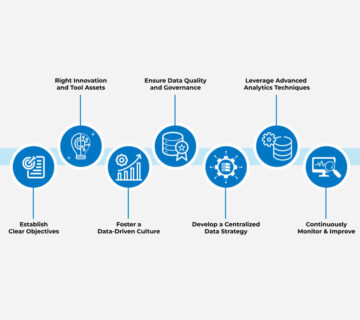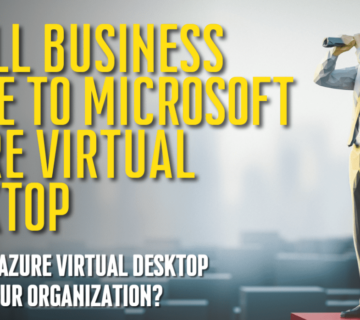A Guide to NIST
Founded in 1901, the National Institute for Standards and Technology (NIST) is a non-regulatory U.S. government agency that uses standards, metrics, and technology to promote economic and innovative competitiveness within U.S. organizations in the science and technology industries. NIST regularly releases documentation under the NIST Cybersecurity Framework to improve cybersecurity that helps businesses protect sensitive data. Many technologies, ranging from major power grids to tiny computer chips, rely on NIST’s standards and measurements. In addition to setting standards in the United States, NIST works closely with small organizations in various countries to ensure their technologies meet the measurements and standards.
How NIST Relates to Your Business
One of NIST’s biggest roles is to create guidelines on how companies can follow the Federal Information Security Management Act (FISMA), which is a set of cost-effective measures to protect data. While FISMA guidelines are ideal for subcontractors, government agencies, and government contractors, they apply to all private and public sectors. Furthermore, since NIST is not specific to an industry, their standards and regulations help organizations align with other compliance bodies like ITAR, HIPAA, and SOX.
What Is the NIST Cybersecurity Framework?
The NIST Cybersecurity Framework is a set of voluntary guidelines, standards, and processes that organizations implement to lower the risk of a cybersecurity threat. Issued in February 2013, Improving Critical Infrastructure Cybersecurity (Executive Order 13636) partnered NIST with stakeholders to develop a new framework to manage cybersecurity challenges.
To implement such a massive framework, NIST worked with private sector organizations to gather recommendations and input during a year-long process. Over 3,000 individuals from academia, government agencies, and the private sector contributed feedback to infrastructure development.
Are Organizations Required to Utilize the NIST Framework?
Although the framework was created to further protect sensitive data within organizations, use is voluntary. There are no consequences for not using it other than being subjected to data breaches. Organizations can avoid common risks such as fines related to regulatory compliance measures or lost business by using the framework.
There are multiple reasons for adopting the framework, with the most important being the protection of sensitive data. The framework also prioritizes companies’ actions to protect data and ensure the critical aspects are addressed first. The framework was designed to be easy-to-understand, even for those who are not technical, and it’s an effective method of communicating and educating others on cybersecurity risks.
How Can My Company Better Manage Cybersecurity Risks with the Framework?
The NIST Framework delivers a set of standards that apply to companies of all sizes across all industries. Before this framework, there was a major lack of uniformity across the supply chain leading to cybersecurity risks. For instance, a manufacturer might have excellent security measures to protect their data, but the vendor receiving it may implement the bare minimum. Regardless of the manufacturer’s protection, that sensitive data could be at risk elsewhere in the supply chain.
With uniform cybersecurity standards, there is much greater control over sensitive data protection during storage and transfer. Once an organization commits to utilizing the NIST Cybersecurity Framework, it can only work with other companies following the same standard. This communicates expectations along the supply chain and the commitment to data protection.
Additionally, the NIST Framework helps your company contain and respond to the impact if an issue arises. Properly detecting the threat, containing it, and effectively reporting it is a major segment of the framework. When you have standards in place, and a breach occurs, you can quickly respond and reduce the risks.
Applying the NIST Cybersecurity Framework to your company delivers a variety of measurable benefits. The number of companies using the framework continues to grow as they see the benefits of implementation. Be one of the companies that utilize this excellent resource that was created to protect your sensitive information and that of your customers.




Topical products are also available over the counter or by prescription some are better than others, so please feel free to ask during your appointment for a recommendation priligy premature ejaculation pills
Can you be more specific about the content of your article? After reading it, I still have some doubts. Hope you can help me.
авто аккумуляторы спб интернет магазин интернет магазин аккумуляторов
межевание участка стоимость кадастровые работы
купить генератор для дачи 5 квт https://tss-generators.ru
Plinko se ha convertido https://medium.com/@kostumchik.kiev.ua/todo-sobre-el-juego-de-plinko-en-m%C3%A9xico-instrucciones-demos-opiniones-y-m%C3%A1s-d1fde2d99338 en una de las opciones favoritas de los jugadores de casinos en Mexico. Conocido por su simplicidad y gran potencial de ganancias, este adictivo juego ahora cuenta con una plataforma oficial en Mexico.
Онлайн-журнал о строительстве https://zip.org.ua практичные советы, современные технологии, тренды дизайна и архитектуры. Всё о строительных материалах, ремонте, благоустройстве и инновациях в одной удобной платформе.
казино онлайн 2024 топ в россии интернет казино с хорошей репутацией